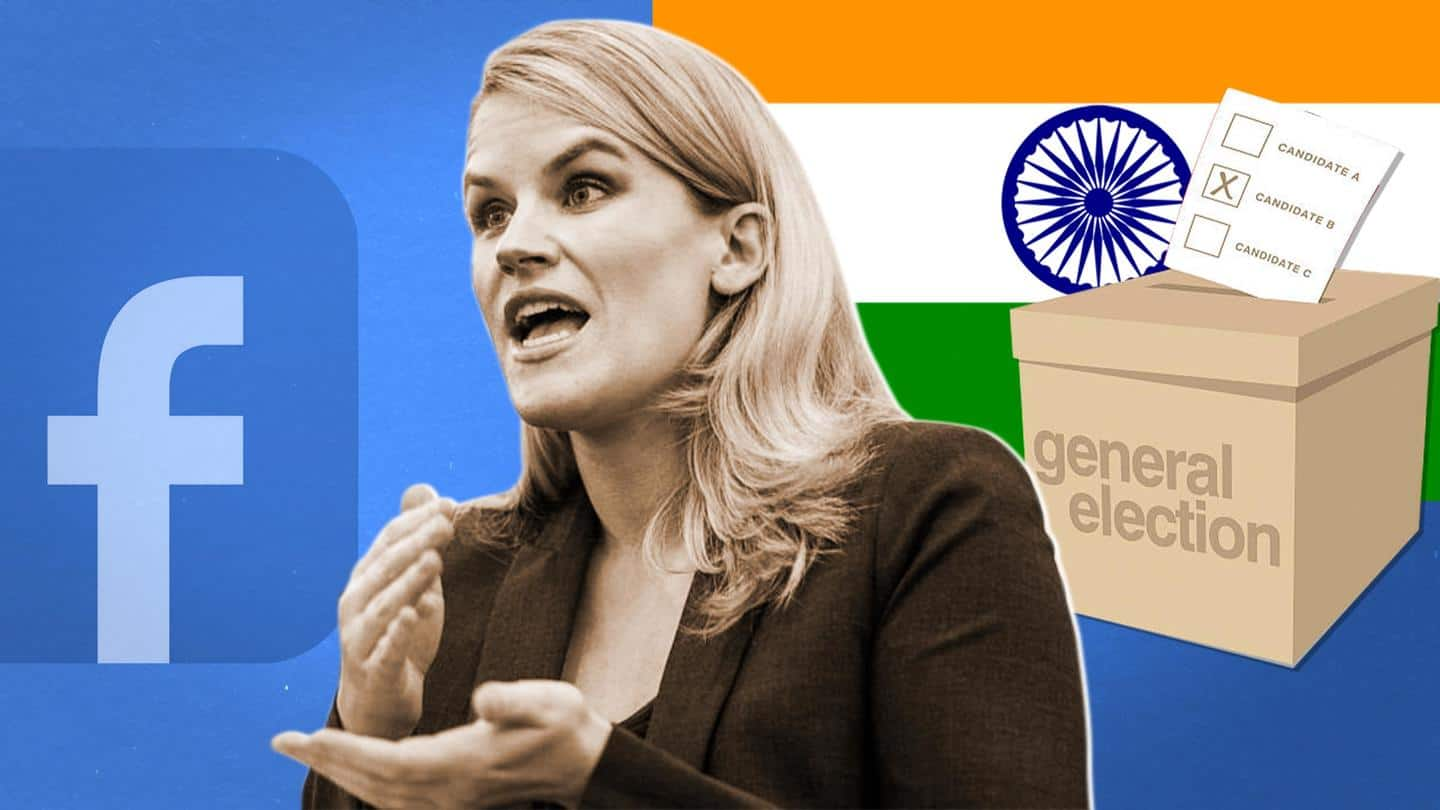Did Facebook collude with the Election Commission of India?
What's the story
Facebook's internal documents from 2019 revealed by whistleblower Frances Haugen show that in the days leading up to the 2019 general elections in India, the tech giant convinced the Election Commission of India (ECI) to drop its plans of introducing rigid social media regulation.
Instead, Facebook reportedly persuaded the supervisory body to agree upon a Voluntary Code of Ethics (VCE), dodging additional legal obligations.
Context
Why does it matter?
Facebook has been accused of indirectly steering governments and silently promoting political agendas, such as in the case of the Cambridge Analytica scandal.
Haugen's latest discovery could suggest that Facebook played a role and manipulated public opinion before the 2019 general election in India. Facebook's internal documentation reportedly shows it also managed to convince the ECI to ease content moderation on Facebook.
Denial
ECI isn't familiar with claims in Facebook's internal report
Hindustan Times reports that the ECI and former government officials independently confirmed they wanted a strict social media regulatory framework in time for the elections.
An ECI spokesperson told HT that the body isn't familiar with Facebook's internal report and added that Haugen's claim doesn't appear correct because political advertising on electronic media is prohibited for "48 hours ending with the conclusion of polls".
Details
Facebook says it joined other social media firms for VCE
Meanwhile, in a response emailed to HT, a Meta spokesperson said, "Promoting election integrity in India isn't something we can do alone. Ahead of 2019 general elections, we joined other social media companies in a voluntary code of ethics for the general elections with the ECI."
A committee set up in July 2018 to draft the regulatory framework submitted its report in January 2019.
Stroke of luck
Pressed for time, committee narrowed framework's scope to Facebook's advantage
The committee was to "look into social media regulation during the poll period" but eventually narrowed the framework's scope down to the 48 hours before commencement of voting.
Former Facebook officials told HT that the company wanted to do the minimum to dodge backlash later. An internal memo by Facebook's civic integrity team five days after the elections concluded reportedly detailed these measures.
Revelations
Facebook's internal goal was to prevent regulation for election integrity
The aforementioned details are a part of disclosures made by Haugen's legal counsel to the US Securities and Exchange Commission and Congress. A consortium of media houses reviewed redacted versions of these documents.
In one document titled "India Elections: A Case Study," among other goals, Facebook reportedly listed the prevention of "any bad regulation or law for social media on election integrity."
Quiet
ECI wanted Facebook to disable all ads during silence period
Possibly in line with its internal goal to dodge "bad regulation," multiple unnamed people confirmed that Facebook pushed back against the ECI's framework requiring it to disable political ads during the 48-hour "silence period."
That said, the exact suggestions of the panel established to draft regulations, and Facebook's actions that directly undermined the integrity of the 2019 elections remain unknown.
Absolved
VCE helped Facebook transfer onus for flagging onto ECI
Facebook noted that the VCE "was a significant development which helped our family of apps to continue working within the existing legal framework without attracting any new election law or attracting bad regulation."
However, it absolved Facebook of the responsibility of flagging content, making it a mere follower of the ECI's instructions.
